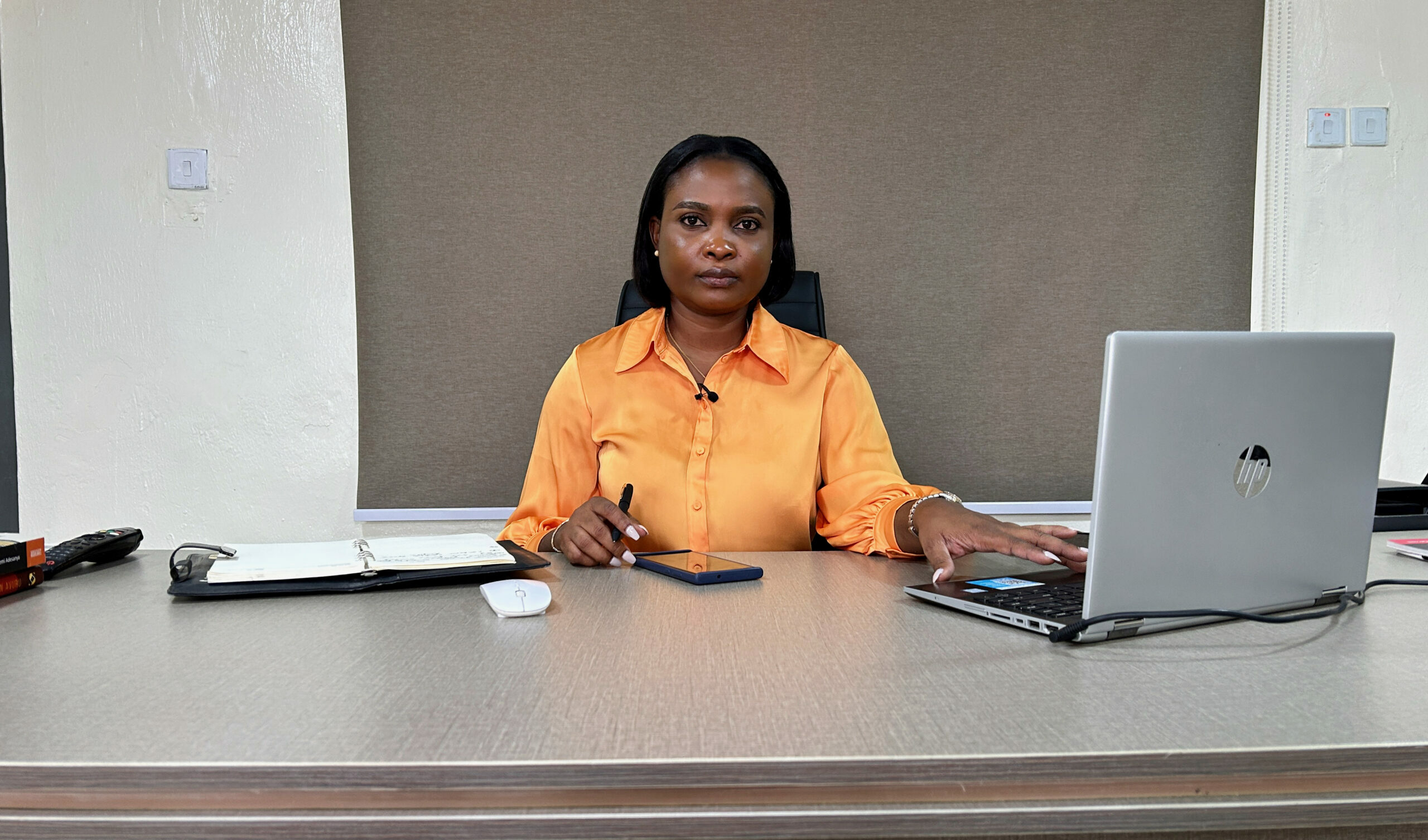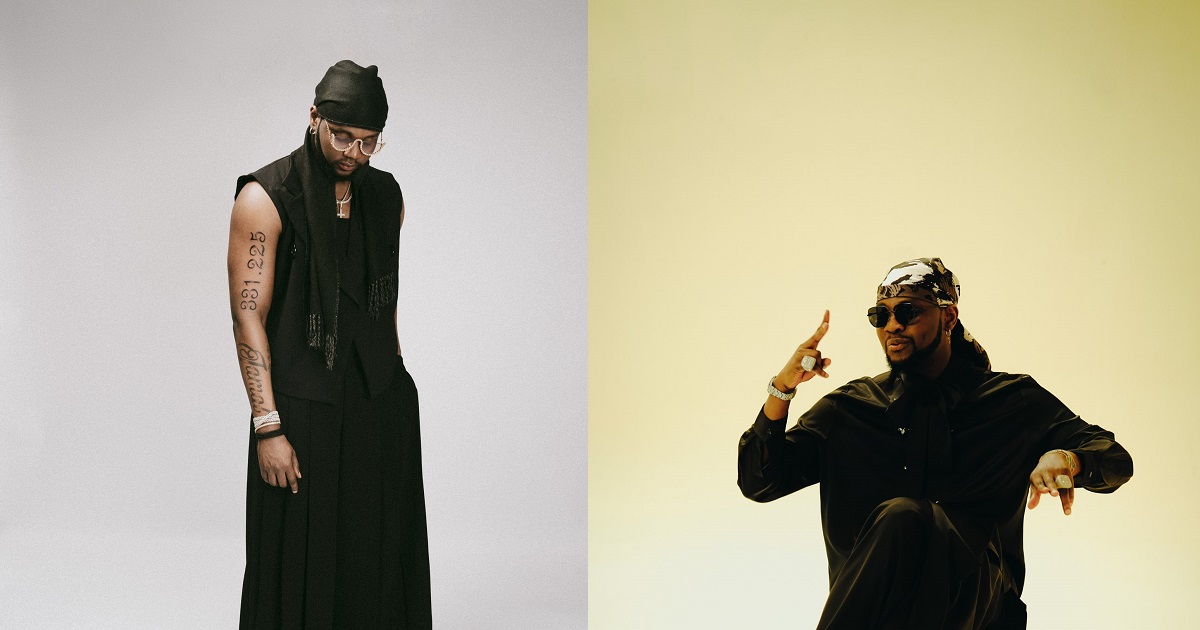Ifedolapo Runsewe, the founder and managing director of Freee Recycle Limited. 2 April 2024. Ibadan, Nigeria. Photo by Zaniel Dada, bird story agency.
Ifedolapo Runsewe is prospecting for “black gold”. Although Nigeria is one of the world’s leading crude oil exporters, this time, oil is not the “black gold” Runsewe is looking for.
A sustainability-driven entrepreneur based in Ibadan, southwestern Nigeria, Runsewe is the founder of Freee Recycle, a waste management company that transforms discarded vehicle tyres into safer, usable products. Freee Recycle is also the launch vehicle for Runsewe’s vision of a cyclical economy.
“A lot of people are worried about the amount of waste we generate and the impact it’s having on our ecosystems. The desire to conserve resources and improve our overall quality of life were motivating factors,’’ the entrepreneur said of her sustainability journey. The journey began after a decade of managing sales and operations for banks and telcos, Runsewe explained. She began looking for an opportunity to take the entrepreneurial leap.
While driving past a landfill one day, she was alarmed by the suffocating fumes coming from piles of burning tyres. Deciding to do some research, she didn’t like what she found.
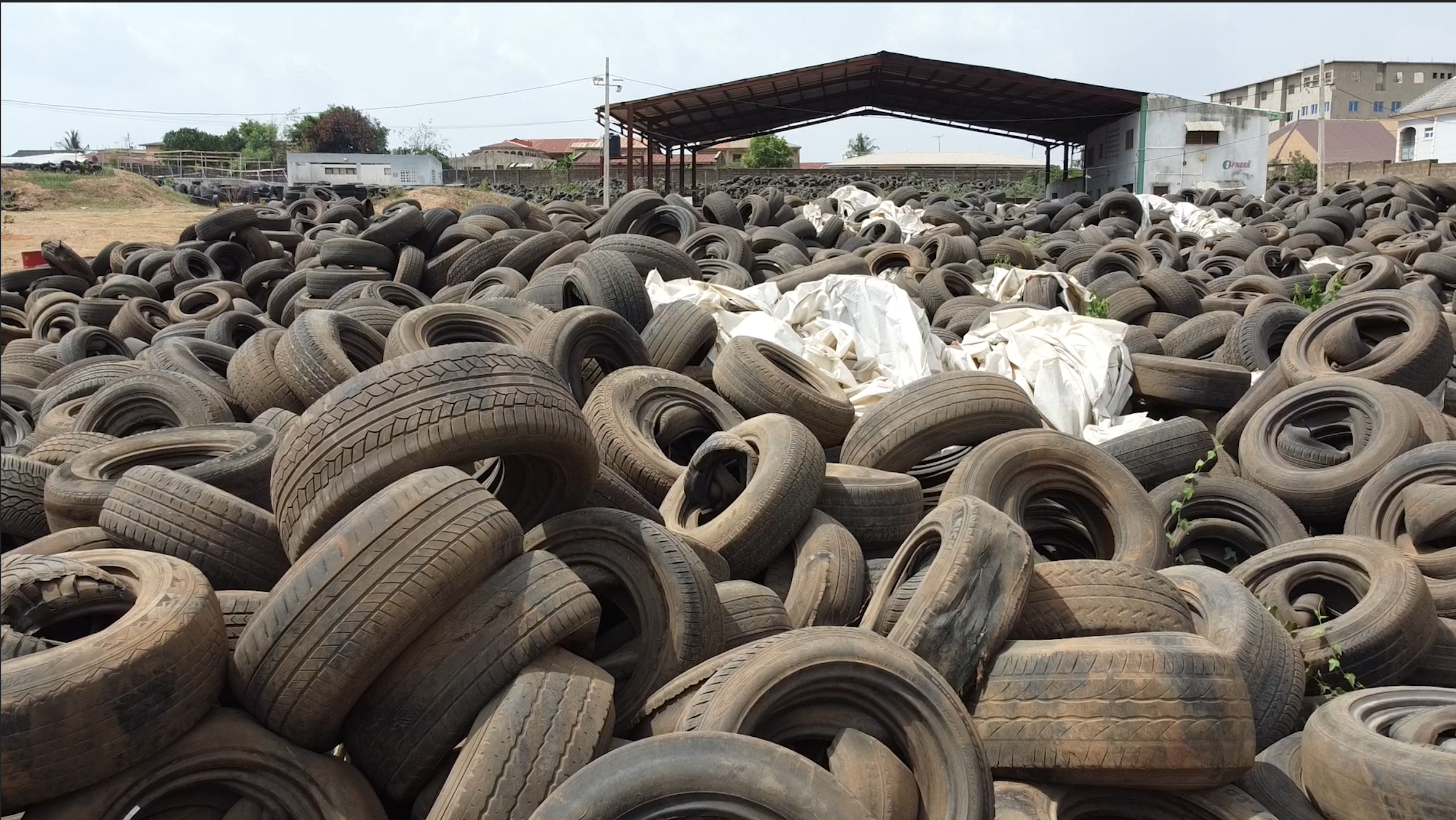
Discarded tyres being processed at the Freee Recycle factory
The World Bank estimates Nigeria will produce over 100 million tonnes of waste annually by 2050. The current level is some 32 million tonnes a year. Processing garbage safely is challenging for Nigerian authorities and there is also widespread illegal dumping.
Old tyres are a particular problem. They have relatively little monetary value after they have been used. Scientific studies have found that they release hazardous material into the soil and water as they decompose and into the air when burnt.
Runsewe spent years on research, design, raising capital, and prototyping before Freee Recycle (registered as Freetown Waste Management Recycle Ltd) officially got rolling in 2020.
“No one else was doing this at that time. We had to train our staff from scratch. And then we had to import all the technology because it was a nightmare to fabricate them locally. Sometimes we got it right, sometimes we didn’t and that was money down the drain,’’ she said.
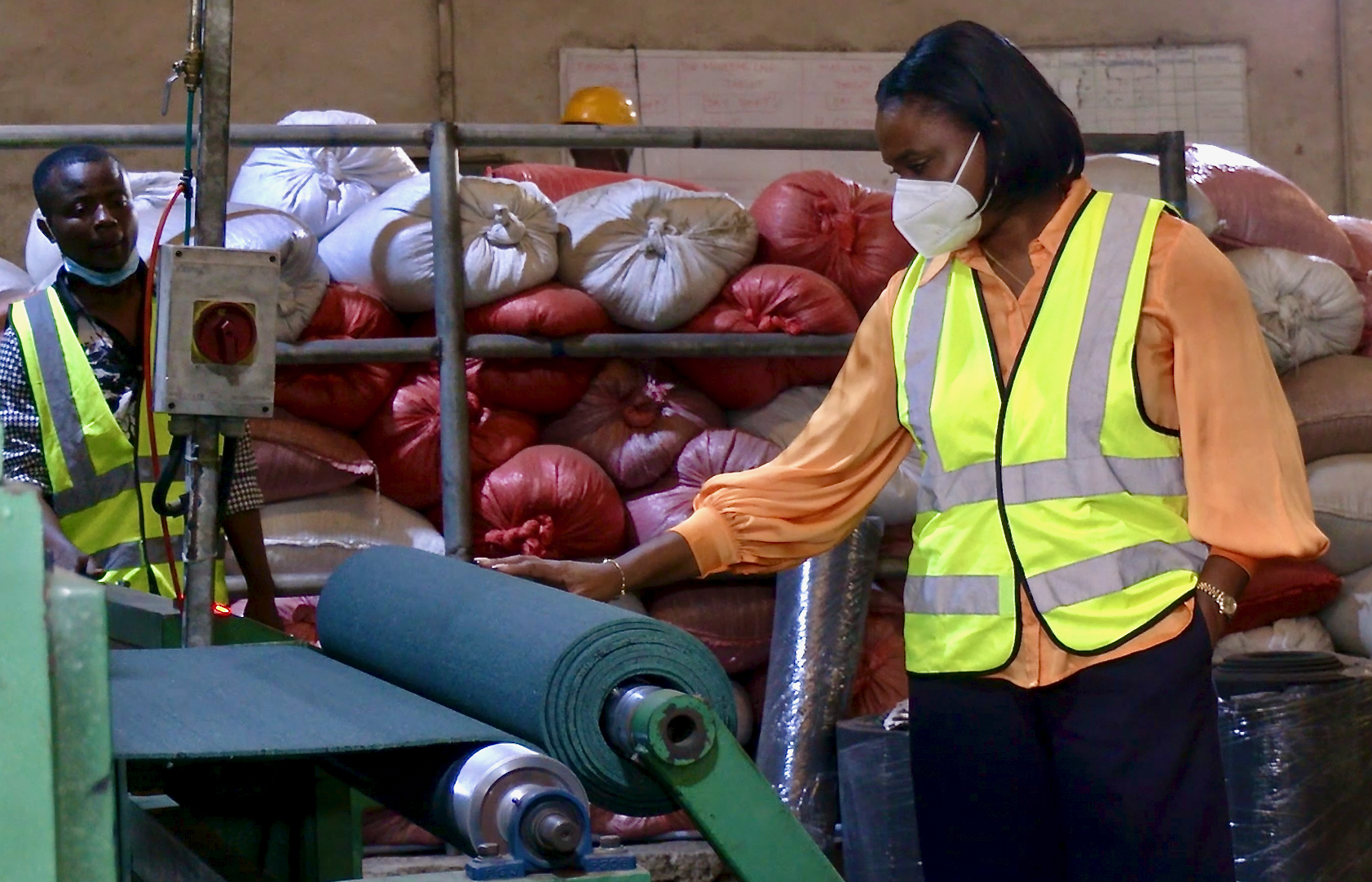
The “sweat equity” and over US$5 million that Freee Recycle and its partners have invested so far are now paying off and social enterprise records indicate the company has 160 employees. Freee Recycle claims their sole facility in Ibadan’s industrial area can handle around 150 car tyres per hour and has gone through 250,000 tyres so far.
“Our plan is to scale up to one million tyres per annum or more, and to achieve that we will need to set up other ‘crushing sites’ around the country,” Runsewe said.
The workflow at the factory involves using specialised equipment to break down the tyres, remove embedded objects, and then mould the salvaged rubber into various products for industrial, commercial, and residential use.
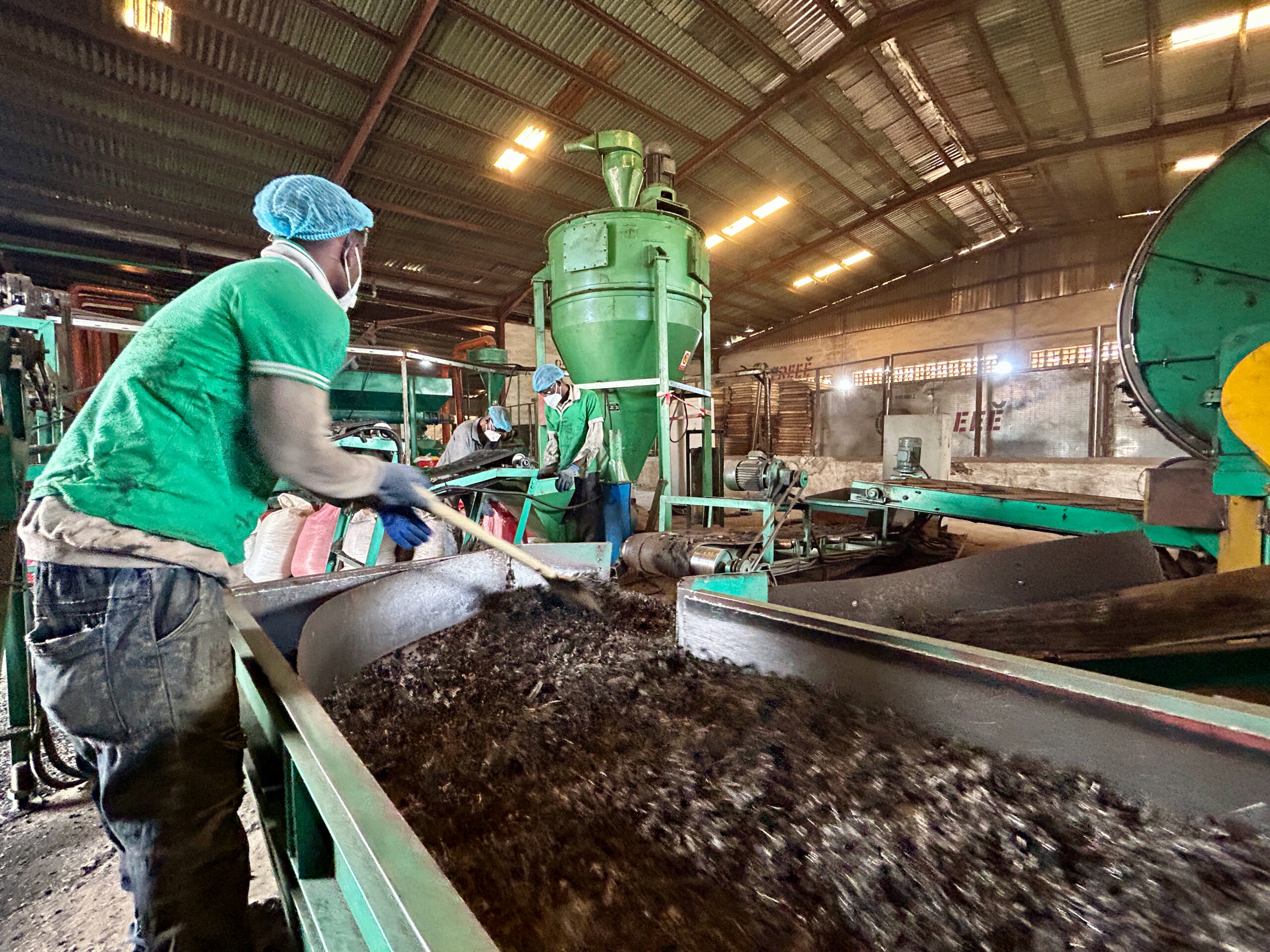
Runsewe outlined two main strategies her company uses to mine its “black gold”.
By positioning itself as an operational hub in the tyre waste management ecosystem, Freee Recycle encourages a value chain in the recycling ecosystem. The company purchases discarded tyres from registered vendors and agents at about US$0.10 per piece, creating business opportunities up the chain. Sources like auto repair services receive additional revenue from selling their old tyres, while Freee Recycle’s collectors make money by identifying and supplying stockpiles to the company.
Freee Recycle also encourages organisations with fleets of vehicles to dispose of their used tyres responsibly via an Extended Customer Responsibility (ECR) programme that enables the organisation to divert – at source – the flow of old tyres to landfills. This strategy also makes collating data more efficient as a relatively large number of tyres are collected from fewer sources.
Partner organisations are issued certificates that detail the materials received, how they were processed, what they were turned into, and how the processing contributed to reduced emissions.
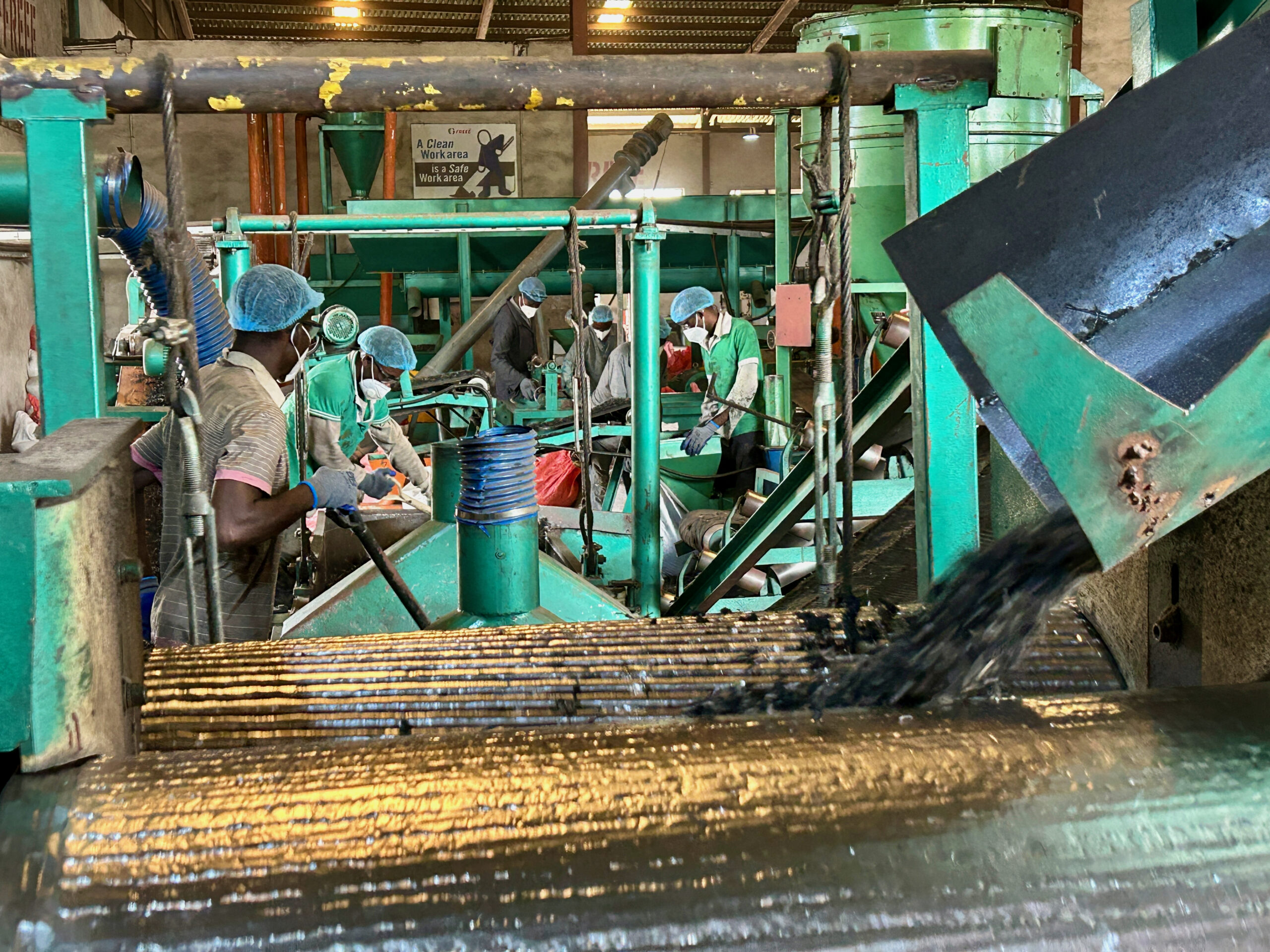
Discarded tyres being processed at the Freee Recycle factory
Runsewe’s efforts to reduce Nigeria’s carbon footprint also focus on Freee Recycle’s industrial operations.
“Power is one of our main challenges. The machine behind me is currently running on a diesel generator, which itself is not clean or sustainable. We’re working on migrating to a cleaner source of energy,” she pointed out.
Overheads make competing with imported or non-biodegradable mainstream products difficult. Some of Freee Recycle’s best sellers are rubber tiles that sell for about US$45 per square metre. Freee Recycle also produces mats, paving bricks, marine bumpers, kerbs, insulation rolls, and other rubber accessories.
The company’s marketing strategy includes highlighting to price-sensitive consumers that their goods are more durable, ethically produced, support local businesses, and solve an existing problem.
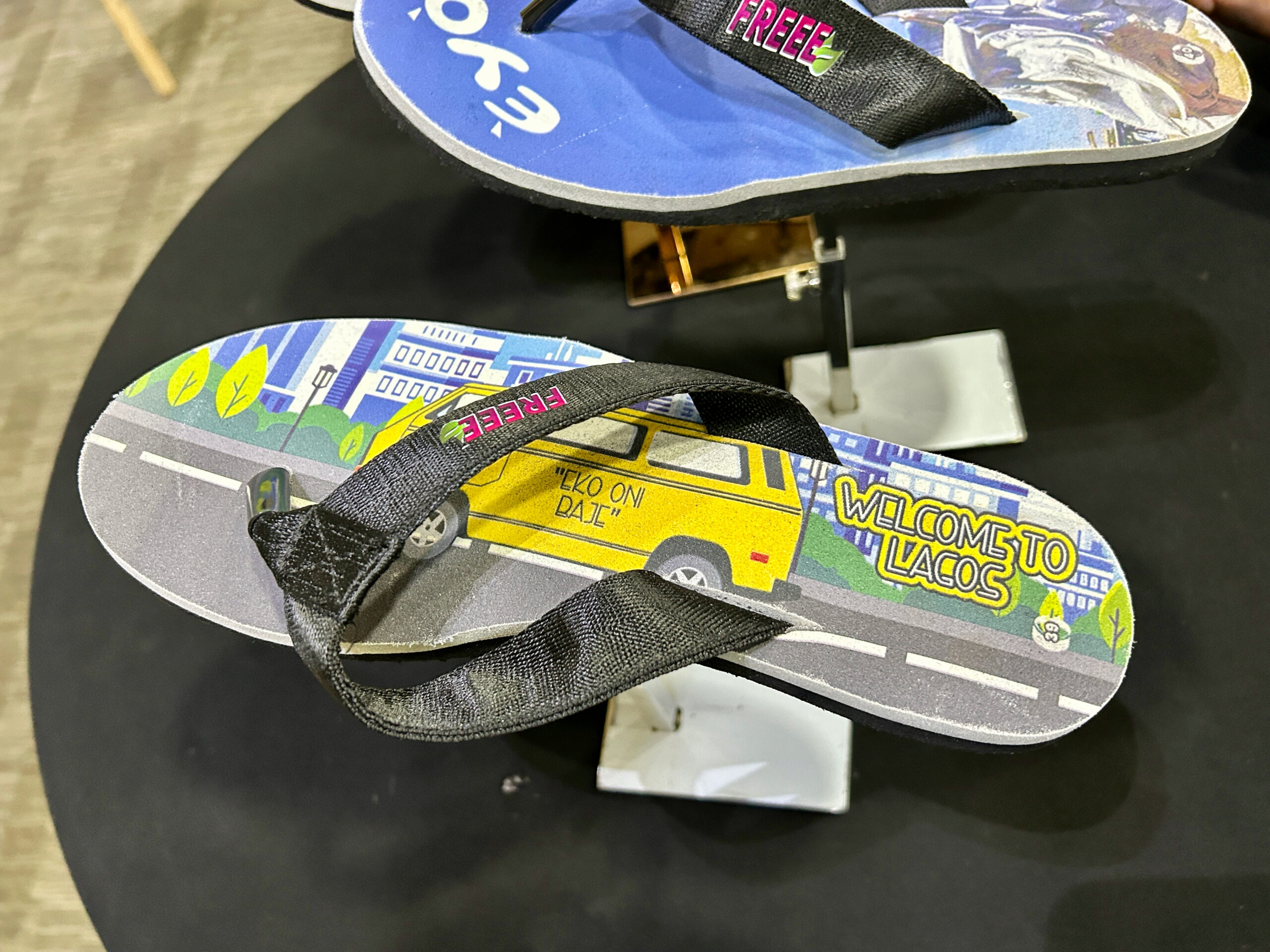
Flip-flops made from recycled tyres on display at a promotional event
Runsewe believes the future of the industry lies in creating harmony between economic goals and increasing social responsibility.
“We’re trying to shift from a linear to a circular economy, so there must be a plan for disposing of the materials that manufacturers are putting out there when they reach the end of their product’s life cycle,” she explained.
This is one of the reasons Runsewe is so excited about Freee Recycle’s latest offering; upscaled and eco-friendly flip-flops.
“We’ve had our eye on the sustainable fashion industry from the very beginning. While visiting Kenya in 2019, I saw Maasai warriors wearing sandals made from waste tyres. It made a lot of sense,” Runsewe recalled.
Some of Freee Recycle’s flip-flops feature graphic designs celebrating Nigeria’s cultural heritage.
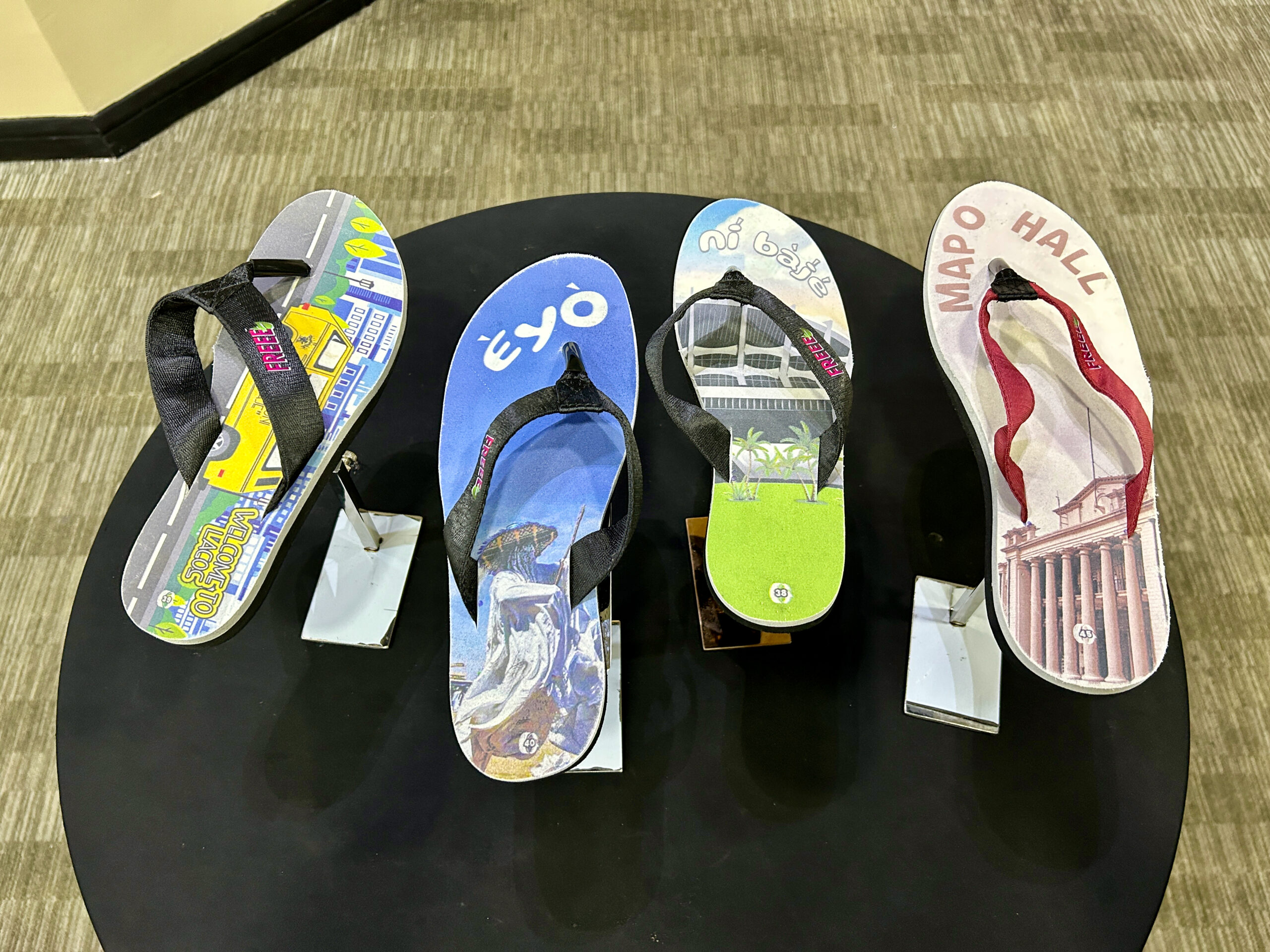
Flip-flops made from recycled tyres on display at a promotional event organised
“What Ifedalapo is doing with Freee Recycle should be scaled across Africa and the globe. The sale of these products also increases visibility around environmental issues and leads to more investment and partnerships,” said Abimbola Olufore-Wycliffe, who heads Nigeria’s Investment and Technology Promotion Office for the United Nations Industrial Development Organization (UNIDO).
The guest list for a launch event of Freee Recycle’s flip-flops read like a Who’s Who of influential women in Nigeria’s green economy.
“I’m also trying to set an example for other women. We have seats at these tables now. So let’s be more vocal, share our ideas, and help drive change,” Runsewe said after the March event in Lagos.
Freee Recycle has also started recycling steel, by smelting scrap metal for repurposing into items like nails and wire.
This is where the rubber hits the road for Ifedalopo Runsewe. She intends to keep promoting a mix of solution-focused innovation, existing resources, partnerships, and entrepreneurial resilience, to contribute to the region’s economic growth.
“For me, success is doing something that I love, something that makes me happy, but most importantly something that impacts other people’s lives positively as well,” she concluded.
Story Credit: Zaniel Dada for Bird Story Agency

.png)
